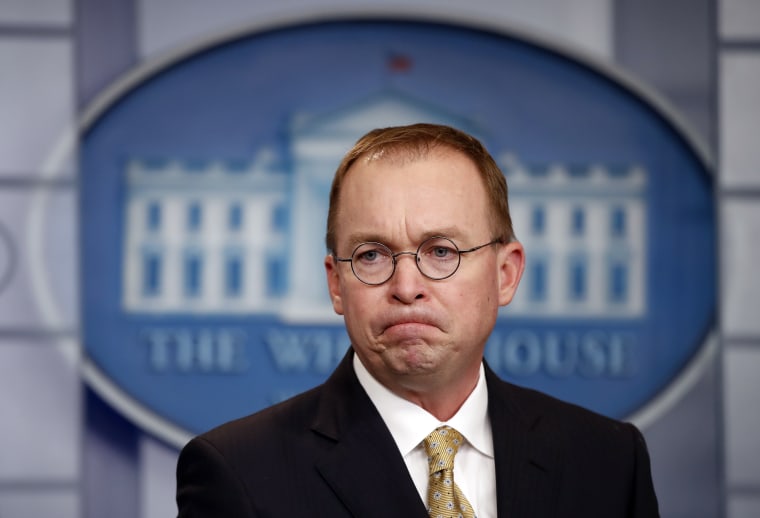One of the most controversial aspects of the nation's finance industry is the prevalence of payday lenders, and the business practices that consumer advocates consider predatory. The Obama administration unveiled new safeguards in 2016, specifically intended to protect the public.
Last month, Donald Trump's Consumer Financial Protection Bureau, led by Budget Director Mick Mulvaney, announced that those rules would effectively be ignored. CNBC reported yesterday on the latest effects of the Trump administration's approach to the payday-lending industry.
The federal consumer watchdog has dropped a lawsuit against a lender that allegedly charged people up to 950 percent interest rates. It's part of a move away from aggressive enforcement under interim director Mick Mulvaney that has angered career staff, NPR reported.The Consumer Financial Protection Bureau confirmed to CNBC on Monday that it scrapped the suit against Golden Valley Lending in January. Mulvaney, who also heads the administration's Office of Management and Budget,was appointed by President Donald Trump to lead the CFPB after Democrat Richard Cordray resigned.Mulvaney -- a harsh critic of the CFPB while serving in Congress -- decided to scrap the legal action even though career officials wanted to move ahead with it, several CFPB staff members told NPR.
Note, NPR's report makes clear that CFPB officials spent years building a case against Golden Valley Lending, and if the litigation had been successful, thousands of Americans stood to get some of their money back. Mulvaney didn't care.
The report specifically highlighted a Michigan woman named Julie Bonenfant, who faced a financial crisis that led her to borrow $900 from Golden Valley Lending. She soon discovered that "her scheduled payments in less than 12 months will total $3,735, or more than four times what she borrowed."
Bonenfant told NPR, "To be honest I'm really mad, really pissed, because I actually voted for Trump. So knowing that his guy threw out this case that affects people like me, I feel kind of like stupid -- just kind of like betrayed."
That's an understandable reaction. Trump, described by Sen. Marco Rubio (R-Fla.) as a brazen "con man" during the campaign, assured Americans he'd be tough on financial institutions if elected. Like so many of his promises, the opposite turned out to be true.
Payday lenders couldn't be more pleased. The New York Times recently reported that in April, "hundreds of members of the payday lending industry will head to Florida for their annual retreat featuring golf and networking at a plush resort just outside Miami. The resort just happens to be the Trump National Doral Golf Club."
